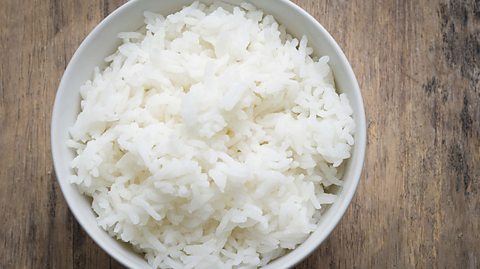Key points
Vitamins and minerals help the body to use other nutrients efficiently.
Examples of vitamins include vitamin A which is vital for good eyesight and vitamin K which helps the blood to clot.
Nutritionist are experts in food and diet; they can use their specialist knowledge to help people consume the correct quantities of vitamins and minerals to stay healthy.
Why are vitamins and minerals needed?
Video
Nutritionist Ă“scar Serrano talks about vitamins and minerals
Vitamins are a group of nutrients that are needed in very, very small amounts for the body but are essential for our system, essentially because the body cannot function without them.
My name is Ă“scar Serrano. I am the Nutrition and Early Childhood Development Specialist for UNICEF UK.
Vitamins are found in fresh vegetables, fruits, but you can also get them from dairy, from meat, liver, oily fish. They are needed to build bones, eyesight, skin, everything that makes you you.
We always need the same vitamins throughout our life, but we will need them in different amounts. When we are born, vitamin A and vitamin C are needed in big amounts. Vitamin A is very important for the development of eyesight.
The easiest way to know that you're getting all the vitamins you need is making sure that your diet is balanced from all the food groups.
Can you answer these questions based on the video?
1. Do we need a very large or a very small amount of each vitamin?
2. Which vitamin is in oily fish?
A very small amount. The amount we need varies throughout our lives.
Vitamin D.
What is a nutritionist?
Nutritionists help people to eat diets that include the right quantities of vitamins and minerals to stay healthy. They may be employed by the health service, international development charities and elite sports organisations.
Function of vitamins and minerals
Your body needs vitamins and minerals in small amounts, they help use other nutrients efficiently. You can usually get enough vitamins and minerals from a balanced diet that includes plenty of fruit and vegetables.
There are many different vitamins and minerals, each with its own purpose. They are found in different foods. Here are some examples:
| Vitamin | Foods | Function(s) |
|---|---|---|
| Vitamin A | Cheese, eggs, oily fish | Fighting infection, better vision, keeping skin healthy |
| Vitamin B1 | Peas, bananas, oranges, nuts, bread | Releasing energy from food |
| Vitamin B2 | Milk, eggs | Healthy skin, eyes and nervous system, releasing energy from food |
| Vitamin B12 | Meat, fish, milk, cheese, eggs | Make red blood cells, release energy from food |
| Vitamin C | Citrus fruits | Healthy skin, blood vessels, bones and cartilage |
| Vitamin D | Our body creates this from direct sunlight but it is in oily fish, red meat and egg yolks | Helps keep bones, teeth and muscles healthy |
| Vitamin E | Vegetable oil, olive oil, nuts, seeds, cereals | Healthy skin, eyes and immune system |
| Vitamin K | Green vegetables, vegetable oil, cereals | Healing wounds |
| Mineral | Foods | Function(s) |
| Calcium | Milk, green vegetables | Strong bones/teeth, healthy muscles, blood clotting |
| Iodine | Fish, shellfish, yoghurt | Makes some hormones |
| Iron | Red meat, beans, nuts | Making red blood cells |
| Zinc | Red meat, beans, chickpeas | Helps to heal wounds |
How much do you need?
Everyone needs the same vitamins and minerals, but the amounts you need vary with age and sex. For example:
A teenage boy needs 1.0 g of calcium every day, but an adult man needs just 0.70 g. This is because the boy is growing but the man is not.
A teenage girl needs 0.015 g of iron daily, but a teenage boy needs just 0.011 g. This is because girls lose blood, which contains iron, during menstruation (periods).
Test your knowledge
Play the Atomic Labs game! gamePlay the Atomic Labs game!
Try out practical experiments in this KS3 science game.

More on Nutrition, digestion and excretion
Find out more by working through a topic
- count9 of 15

- count10 of 15

- count11 of 15

- count12 of 15
